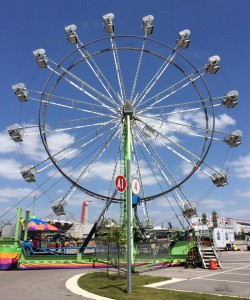Marketing / Public Relations / Media Guide
The Marketing and Public Relations elements of an event and festival can be on the more bare-bones / grassroots level or can be a very significant part of the event budget and manpower. It all depends on how much money and in what ways you wish to promote awareness of the event.
- Create an overall marketing plan – that includes TV/radio/print ads
- Setting up a budget and grid for when they will all hit so they can be tracked
- TV
- Deciding which channels to run and at what times
- Negotiate deals with local media providers
- Work with the Creative Department to produce the ads
- Radio
- Deciding which radio stations to run and at what times
- Often, one company will control several radio stations, some or all of which may have listeners interested in your event – you can often work to get a package deal
- Work with the Creative Department to produce the ads
- Print ads
- Deciding which periodicals to run ads with
- Deciding on the proper size / message
- Work with the Creative Department to produce the ads
- TV
- Setting up a budget and grid for when they will all hit so they can be tracked
- Coordinate with the social media team to have a marketing plan for all chosen social media outlets
- Work on what sort of content you wish to push out – and how much is directly related to your event vs content that is relevant but not directly related (i.e., talking about another event, or nearby food options)
- Finalize how often you wish to post – finding that middle ground between posting too much or not enough (all in an effort to keep and grow your audience)
- Decide which social media you need to utilize
- Snapchat
- Youtube
- Tumblr
- Work to create press releases to local media
- Often, companies will hire a third party PR firm that has all of the connections needed to get the press releases published.
- Ensuring your press releases are both accurate and timely
- Having a plan in place to release emergency notices
- Tips on writing a press release
- It should answer the five W’s – who, what, why, where, when (and also, how)
- Follow the pyramid format: first paragraph encapsulates the story, while the following paragraphs go into greater and greater detail, keeping in mind that editors cut press releases from the bottom.
- Try to limit all press releases to one page, and use -30- or # to end the document.
- Begin the release with an interesting headline to capture interest
- Decide whether to have pre-event marketing pushes to help create buzz / increase exposure
- Based on the budget available, sponsoring or hosting pre-event concerts, dinners, happy hours, or other forms of social gathering can go a long way to boost exposure

Ferris Wheels – always a crowd-pleaser
- Work with ticketing to arrange for giveaways / promotions / contests
- Based on what allotment for promotions exists, work to utilize these in the most meaningful way, spreading them between social media and/or in-person promotions
- For run of show, have a dedicated media area with a media manager
- Most larger shows will have a Marketing Manager and a Media / PR Manager to help oversee all media that will be on-site for the event.
- The Media Manager helps in the following areas
- Manages photographers needing pit access – most artists will need them escorted out after the third song
- Manages any backstage interviews with artists
- Helps coordinate / oversee the build and strike of the media area, which provides media their own space with wi-fi, restrooms, and a place to work
- See our “Staffing and Labor” Guide for more details


